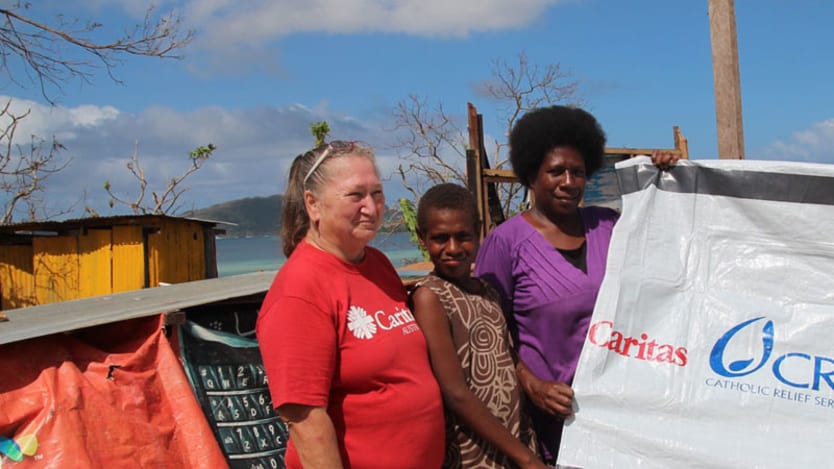
CANBERRA — Australia’s NGOs are breathing a sigh of relief after a parliamentary inquiry recommended — echoed by the attorney general — that charities be exempt from proposed legislation targeting foreign donations.
Since the legislation, aimed at curbing foreign influence in Australian politics, was first proposed late last year charities have raised the alarm over the potential impact on their work. The bill and subsequent statements from politicians suggested that charities would not be exempt from onerous levels of monitoring, managing, and reporting on donations received from foreign entities.
Analyzing Australia's aid trajectory
While Australia's aid budget has received the thumbs-down from the development sector, it does provide new insights into how the nation will support the SDGs — and which goals are taking priority.
For many, concern of the additional costs to manage this meant that it would be easier to forgo foreign donations — for others, there was concern that they would need to shut up shop.
But after months of advocacy — including hard and often harsh questioning from members of the government — it appears that NGO sector has made their voice heard.
What the report recommends
Recommendation 24 adjusts the bill’s definitions of “foreign principal” as the definition of “undertaking activity on behalf of a foreign principal” to reduce the impact on charities.
Recommendation 25 is even more explicit, setting out to “provide exemptions for charities, arts organisations and industrial associations, which would operate to relieve those organisations of an obligation to register when they are making routine representations in accordance with their respective purposes, and where the relationship with the foreign principal is well known or a matter of public record.”
Response from Australian NGOs
The Hands Off Our Charities alliance, established in response to the proposed legislation, was encouraged by the recommendation — and news of its acceptance.
“The bipartisan recommendation to exempt charities from the registration requirements when they are doing their day-to-day work to achieve their charitable purpose is a victory for common sense,” Marc Purcell, CEO of the Australian Council for International Development, told media.
“This exemption will ensure that charitable work is not unfairly targeted. We welcome the committee’s collaboration in recognizing our concerns.”
David Ritter, CEO of Greenpeace Australia Pacific, and Paul O’Callaghan, CEO of Caritas Australia, were relieved that their organization’s international partnerships were expected to continue without unnecessary political oversight.
“If a charity like Caritas collaborates with an overseas government on a program to reduce violence against women in that country, and then uses information from that work in its communications to the Australian Government, the original bill would have branded them as ‘acting on behalf of foreign principal,’” Callaghan said.
“We welcome the committee’s recognition that in scenarios like this, charities are not doing the bidding of any government. They are working together with a partner government to improve the effectiveness of their interventions.”
Hugh de Kretser, executive director of the Human Rights Law Centre, told media that the recommendation took into account the existing administrative requirements charities and not-for-profits adhere to in Australia.
“Charities are already well-regulated and cannot support political parties or candidates,” he said.
“Charities do vital work in Australia and internationally, contributing to better laws and policies and informed public debates. The requirement to register as foreign agents or face criminal penalties was unnecessary and unfair.”
But de Kretser said civil society organizations not registered as charities or unions were still a grey area for the proposed legislation.
United NGO front shows its political power
Behind the scenes NGOs worked hard, not only to create an allied front in calling for changes to the legislation, but in keeping the voice of charities in the media. This was despite the government reaching fever pitch in their campaign for the legislation in May when member of parliament Andrew Hastie linked a prominent Australian-Chinese political donor to allegations of United Nations bribery.
A continuous flow of opinion pieces in mainstream media meant the impact of broad legislation was heard by the Australian community. And ongoing engagement with politicians meant that the opposition and other influential politicians would not be swayed by the booming voices claiming foreign influence was everywhere.
In response to the report, Shadow Attorney-General Mark Dreyfus considered the recommendation to exempt charities a victory for the Labor party, saying they had “secured important exemptions for charities.”
While these comments play down the work of NGOs to bring about this change, they do show that — despite continued aid budget cuts — NGOs continue to maintain an influential role in Australian politics and society.
